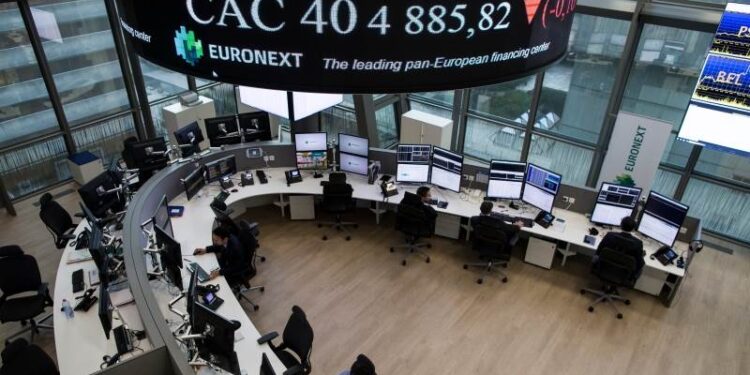European equities opened in muted fashion this morning, with markets displaying a cautious tone as investors look ahead to key US inflation data and ongoing geopolitical shifts. The early decline reflects prevailing concerns around global monetary policy, lingering uncertainties in US-China trade relations, and nervous anticipation of macroeconomic signals from across the Atlantic.
The pan-European STOXX 600 opened around 0.3% lower, after a flat performance on Tuesday. Frankfurt’s DAX fell 0.4% in early trading, while Paris’s CAC 40 slipped 0.2%. London’s FTSE 100 also edged lower by about 0.2%, continuing its choppy performance since the start of the month. Italy’s FTSE MIB followed suit, opening in negative territory, reflecting a broad-based, if mild, decline across the region.
This morning’s downbeat sentiment is largely driven by the expected release of new consumer price data in the United States, scheduled for later today. Investors across the globe are watching closely, with the figures set to provide crucial insight into whether the Federal Reserve is likely to stay its hand or resume tightening in the coming months. A lower-than-expected inflation print could trigger a relief rally, while any upward surprise might revive concerns of prolonged high rates.
Despite the cautious opening, analysts suggest that the underlying tone is one of wait-and-see rather than fear. While European bourses have recently been under pressure from weak manufacturing data and subdued consumer confidence, the resilience of service sectors and relatively strong labour markets have helped prevent sharper sell-offs.
Another factor weighing on European sentiment is the evolving trade posture between the United States and China. Officials in Washington suggested that talks were “moving well” regarding export rules, particularly in areas such as rare earths and semiconductors. While this appears to have soothed some nerves, there is limited optimism in European capitals that any agreement would result in long-term easing of tensions. Traders remain wary that fragile gains could quickly be undone by political friction, especially with US election rhetoric heating up.
On a sectoral basis, early weakness was concentrated in technology and industrials, both of which are particularly sensitive to global trade dynamics and policy risks. Energy stocks held up slightly better, buoyed by continued strength in oil prices following production cut signals from OPEC+. Mining shares were also relatively resilient, as optimism over Chinese stimulus supported metals demand.
Bond markets across Europe showed little movement, with benchmark yields holding steady. The euro was largely flat against the dollar, as currency traders too awaited the outcome of the US inflation print before taking positions.
Looking ahead, attention will remain squarely on US data releases, which are expected to dominate sentiment on both sides of the Atlantic. If inflation data comes in line with forecasts, markets could stabilise and even gain into the afternoon. However, any surprises—especially on the upside—could renew volatility and drive defensive positioning.
In sum, European markets are treading water in early trade, with nerves held in check by the hope of clarity to come. Today may turn out to be a transitional session, setting the tone for the rest of the week as investors reposition around a shifting global economic landscape.
newshub finance



Recent Comments